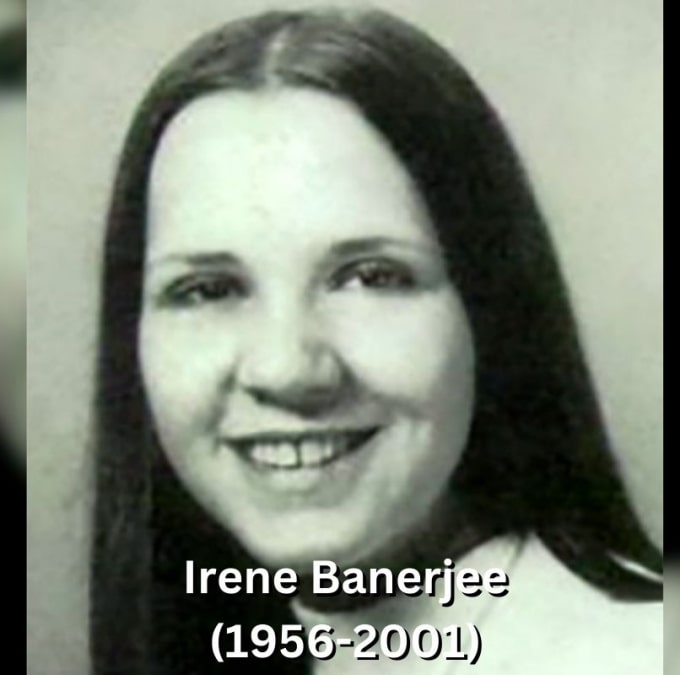Robert Milton Schoch, an esteemed American geologist and associate professor at Boston University, has left a significant mark on the fields of geology, archaeology, and parapsychology. Most recognized for his contentious theories regarding the age of the Great Sphinx of Giza, Schoch's work has ignited widespread debate and captivated scholars globally. This comprehensive profile delves into the life, career, and achievements of Robert M. Schoch, tracing his evolution from academia to the vanguard of pseudohistorical research.
A Snapshot of Robert M. Schoch
| Full Name | Robert Milton Schoch |
|---|---|
| Popularly Known As | Robert M. Schoch |
| Occupations | Geologist, Author, Researcher |
| Age (as of 2024) | 71 years |
| Date of Birth | April 1, 1953 |
| Birthplace | United States |
| Nationality | American |
| Net Worth (2024) | $1.5 million |
| Spouse | Catherine Ulissey |
The Making of Robert M. Schoch: Early Life and Education
Robert M. Schoch's early life laid the groundwork for his future adventures in geology and archaeology. Let's take a closer look at his formative years and educational background.
Childhood and Early Interests
Born on April 1, 1953, in the United States, Robert Schoch's fascination with the natural world was evident from a young age. This curiosity propelled him to delve into various scientific disciplines, eventually leading him to the field of geology.
Academic Journey
Schoch's educational path was characterized by unwavering commitment and academic excellence. He received his Bachelor’s and Master’s degrees from George Washington University in 1979, followed by a Ph.D. in geology and geophysics from Yale University in 1983. This intensive education equipped him with the expertise to challenge established norms.
Pioneering Work: Career Highlights
Robert M. Schoch's career is an intricate weave of groundbreaking research, debatable theories, and exhaustive fieldwork. Here are some pivotal moments that defined his professional journey.
Re-dating the Great Sphinx of Giza
Schoch sparked a global debate with his hypothesis regarding the age of the Great Sphinx of Giza. In 1990, he suggested that the Sphinx, traditionally believed to date back to around 2500 BC, might actually be much older, possibly originating from 10,000–5,000 BC. This theory, known as the Sphinx water erosion hypothesis, has met with both acclaim and criticism.
The Mystery of the Sphinx
In 1993, Schoch's theories reached a wider audience through the documentary "The Mystery of the Sphinx," hosted by Charlton Heston. This program examined Schoch's controversial ideas, fueling further discussion within the archaeological community.
Explorations Beyond Egypt
Schoch's inquisitiveness led him beyond Egypt. In 1997, he started investigating the Yonaguni underwater monuments in Japan, suggesting that they might be remnants of an ancient civilization. In 2006, he also examined the Bosnian pyramid excavations in Visoko, Bosnia, contributing to the ongoing debates about their origins and significance.
Beyond Academia: Personal Life
Robert M. Schoch's personal life has significantly influenced his career. Let's delve into his relationships and interests outside of academia.
Family Life
Robert Schoch is married to Catherine Ulissey, who has been a supportive partner throughout his career. The couple shares a profound interest in exploring ancient mysteries and has frequently collaborated on various research projects.
Hobbies and Interests
Schoch's fascination extends beyond geology and archaeology. He has a keen interest in parapsychology, particularly phenomena such as psychokinesis and telepathy. His explorations in these areas underscore his broader curiosity about the mysteries of the human mind and the natural world.
Notable Achievements
Robert M. Schoch's contributions to science and pseudohistory have earned him recognition and acclaim. Here are some of his most noteworthy accomplishments.
Publications and Books
Schoch has authored several influential books and research papers in the fields of geology and archaeology. His works, including "Voices of the Rocks" and "Forgotten Civilization: The Role of Solar Outbursts in Our Past and Future," delve into his theories on ancient civilizations and cataclysmic events.
Academic Contributions
As an associate professor at Boston University, Schoch has inspired countless students through his teaching and mentorship. His academic contributions extend beyond his controversial theories, spanning a wide range of geological research.
Awards and Recognition
Despite the controversies surrounding his work, Schoch has been acknowledged for his contributions to the field. His innovative ideas and dedication to exploring unconventional hypotheses have solidified his status as one of the most intriguing figures in modern archaeology.
Financial Overview
A look into the financial aspects of Robert M. Schoch's career offers a comprehensive view of his success and influence.
Net Worth and Income
As of 2024, Robert M. Schoch's estimated net worth stands at $1.5 million. His income stems from his academic salary, book royalties, and appearances in documentaries and conferences.
Financial Success and Investments
Schoch's financial success reflects his influence and popularity in the fields of geology and pseudohistory. His books have achieved wide sales, and his theories continue to draw attention. Furthermore, Schoch has made strategic investments in various ventures, bolstering his financial standing.
Controversies and Criticisms
A discussion about Robert M. Schoch wouldn't be complete without addressing the controversies and criticisms that have surrounded his work.
Disagreements with Mark Lehner
One of Schoch's most outspoken critics is archaeologist Mark Lehner, who disputes Schoch's re-dating of the Great Sphinx. Lehner argues that the evidence for water erosion is insufficient to support Schoch's claims.
Skepticism from the Academic Community
Schoch's theories have often been met with skepticism from the broader academic community. Critics argue that his hypotheses lack sufficient empirical evidence and rely excessively on speculative interpretations. Despite these criticisms, Schoch remains steadfast in his beliefs.
Conclusion
Robert M. Schoch's transition from a conventional geologist to a trailblazer in pseudohistorical research exemplifies his relentless curiosity and readiness to challenge established norms. His theories on the age of the Great Sphinx and other ancient structures have sparked debates and inspired further research, cementing his place as a significant figure in modern archaeology.
Frequently Asked Questions (FAQ)
Who is Robert M. Schoch?
Robert M. Schoch is an American geologist and associate professor at Boston University, renowned for his controversial theories on the age of the Great Sphinx of Giza and his research into ancient civilizations.
What is the Sphinx water erosion hypothesis?
The Sphinx water erosion hypothesis, proposed by Schoch, suggests that the Great Sphinx of Giza is much older than traditionally believed, dating back to 10,000–5,000 BC based on evidence of water erosion.
What are some of Robert M. Schoch's notable works?
Schoch has authored several books, including "Voices of the Rocks" and "Forgotten Civilization: The Role of Solar Outbursts in Our Past and Future." He has also published numerous research papers on geology and archaeology.
What controversies surround Robert M. Schoch?
Schoch's theories have been met with skepticism and criticism from the academic community, particularly his re-dating of the Great Sphinx of Giza. Prominent archaeologists like Mark Lehner have disputed his claims.
What is Robert M. Schoch's net worth?
As of 2024, Robert M. Schoch's estimated net worth is around $1.5 million, derived from his academic salary, book royalties, and other ventures.
Robert M. Schoch's work continues to fascinate and inspire, epitomizing the enduring human quest to unravel the mysteries of our past. Regardless of whether you agree with his theories, his contributions to the fields of geology and archaeology are undeniable.













